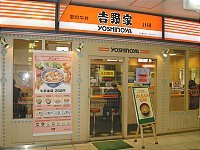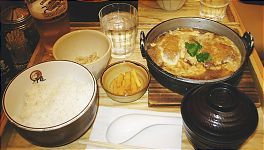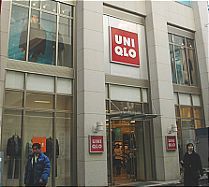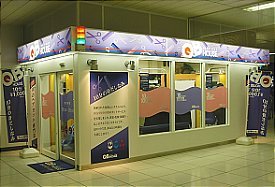Living Cost
Living costs in Japan and especially in Tokyo are famous to be among the world's highest. However, if you live outside of central Tokyo, adjust to a Japanese lifestyle and do not depend too heavily on food and products from your home country, you may be surprised how inexpensive Japan can be.
Housing
Some of the world's most expensive land can be found in central Tokyo. Consequently, even tiny apartments in the city center are very expensive. However, housing costs are distinctly lower in Tokyo's suburbs, surrounding prefectures and in other regions and cities of Japan. Additional commuting costs are often more than compensated by the savings on the rent, especially as many Japanese companies pay part or all of their employees' commuting expenses. If you prefer to live close to city centers, gaijin houses are an inexpensive option to consider.
Utilities such as gas, water and especially electricity are expensive, and phone rates are high. For international calls, consider callback services and other offers for the expat community.
Food
Local supermarkets are relatively inexpensive if you stick to Japanese food such as seasonal vegetables, seafood, soya bean products and rice. If you visit supermarkets shortly before closing time in the evening, you can purchase remaining perishable products at big discounts.
There are plenty of restaurants where you can have a full meal for between 500 and 1000 Yen. Noodles (ramen, soba and udon), domburi (for example, beef domburi), curry rice, bibimba (Korean style domburi), hamburgers and many more types of dishes are available at such inexpensive restaurants. Look for them around and inside large train stations and in business areas.
A meal at a more average restaurant costs roughly between 1,000 and 3,000 Yen, while there is no upper price limit when it comes to high-class restaurants such as ryotei.
During lunch hours, many restaurants offer inexpensive teishoku (set menus) at around 1000 Yen. Lunch boxes (bento), which are sold in convenience stores and department stores, train stations and at temporary stands in business areas are also a good deal.
 beef domburi (280 Yen) |  |
Everyday goods and services
Clothing departments of supermarket chains such as Ito Yokado or discount clothing stores such as Uniqlo offer inexpensive clothing. The availability of large sized clothes may becomes a problem if you are over 180 cm tall or a big person, otherwise. Department stores and boutiques are more expensive.
Japanese hair dressers are famous for their great service and high prices. However, there are also places where you can get a quick haircut for around 1000 Yen.
While naturally not famous for high quality, 100 Yen Shops sell a large range of products including stationary and kitchen goods at 105 Yen each (consumption tax included) and can be very cost-efficient.
 has branches everywhere |  |
Transportation
Commuters can purchase commuter passes for unlimited travel between their home and office/school for a given time period. A large variety of other discount offers is available for train travel in Japan. Check out our Guide to Japanese train tickets for more details.
Owning a car in Japan is expensive due to the mandatory bi-annual inspections (shaken), mandatory insurance, an automobile tax and the fee for a parking space (in large cities). The cars themselves, however, are relatively inexpensive, with smaller new cars starting at under one million yen. A liter of gasoline costs around 100 Yen. The use of highways is subject to tolls.
Electronics
Electronic goods, such as TVs, stereo sets, cameras and computers are relatively inexpensive at stores like Yamada Denki, Yodobashi Camera, Sakuraya and Bic Camera, and in discount shopping areas like Akihabara in Tokyo.
Labels: Living in Japan



0 Comments:
Post a Comment
Subscribe to Post Comments [Atom]
<< Home